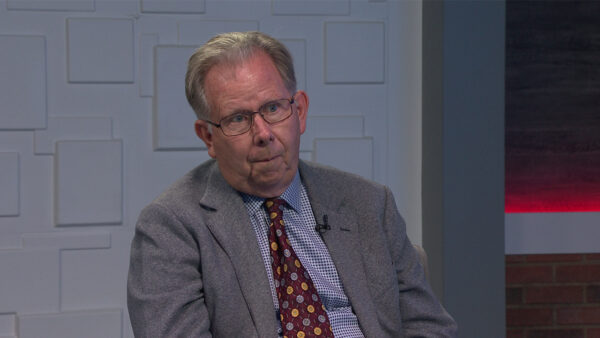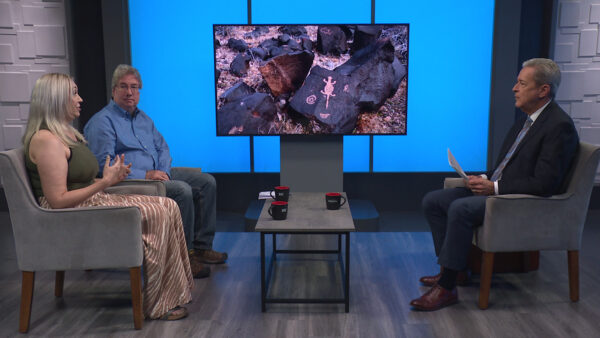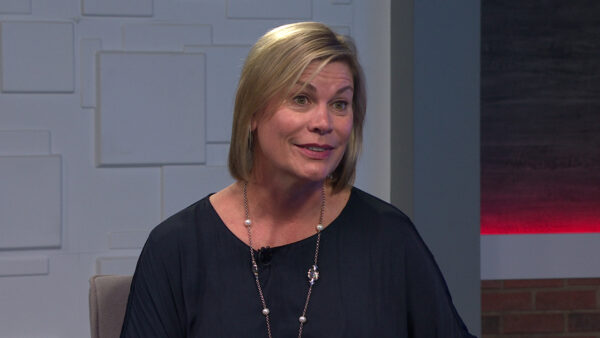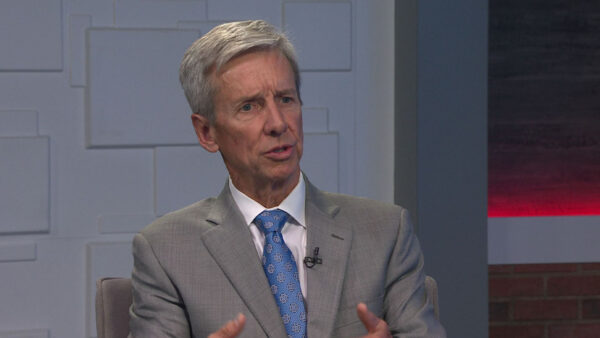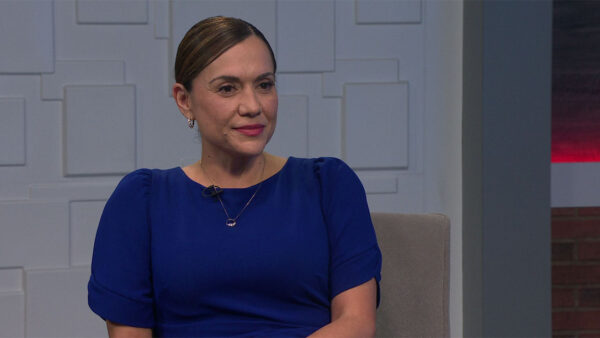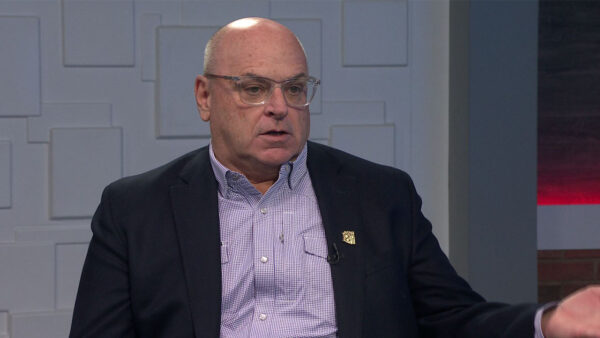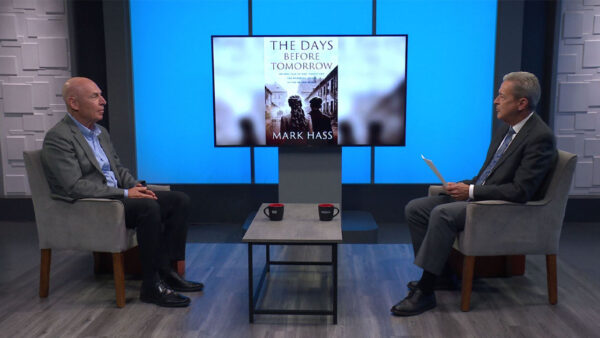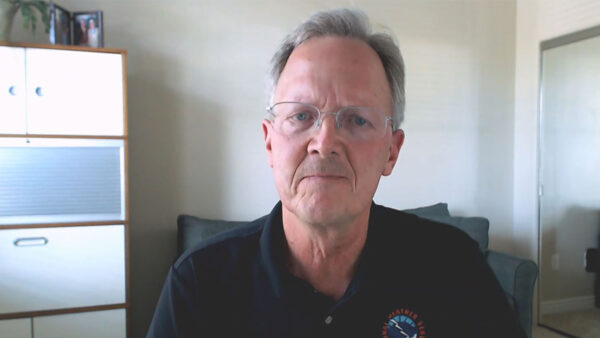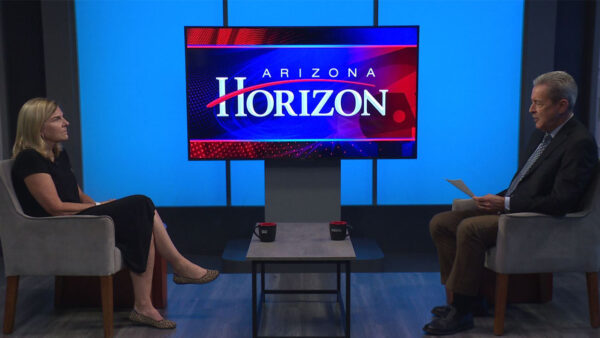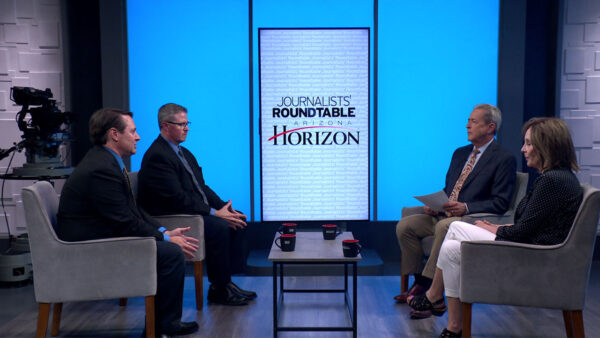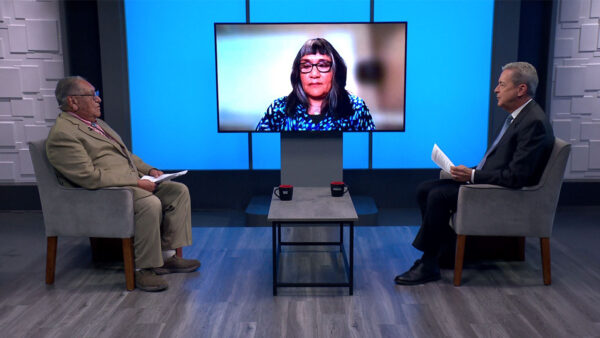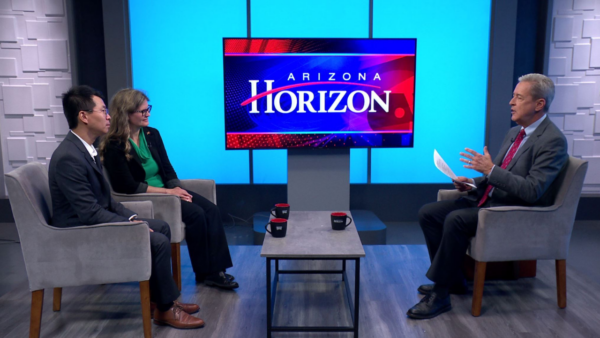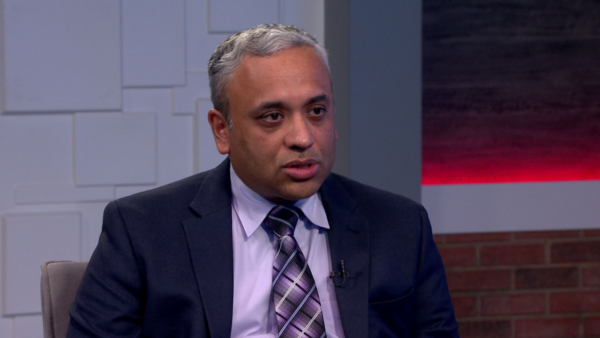The United Kingdom will vote on whether to exit the European Union, a move that will have political and economic repercussions in the United States and around the world. Jose Mendez, the vice-chair of Arizona State University’s W. P. Carey’s Economics Department, will talk about the economic ramifications for the U.S. and Arizona.
Ted Simons: Coming up next on "Arizona Horizon," how would a British exit from the E.U. impact Arizona's economy. Also how green energy is being produced at a local wastewater treatment plant and we'll look at Arizona's impact on developing the G.I. bill, which turns 72 today. That's next on "Arizona Horizon."
Video: "Arizona Horizon" is made possible by contributions from the friends of Arizona PBS, members of your PBS station. Thank you.
Ted Simons: Good evening, welcome to "Arizona Horizon." I'm Ted Simons. Federal grand jury has indicted a state lawmaker for her involvement in an alleged food stamp scam. Democratic representative Cecilia Velasquez is accused of fraud, unlawful use of food stamps and theft by misrepresentation. The indictment was handed down last month and unsealed today. She represents areas of Litchfield park and will be arraigned July 5 in Maricopa County superior court.
Ted Simons: The Arizona coyotes could announce a move to Scottsdale by the end of the week. They are considering a site that what's home to a drive-in for 30 years. Coyote's chief executive officer Anthony LeBlanc says he would be surprised if the announcement is not made by the end of the week.
Ted Simons: The United Kingdom will vote tomorrow on whether or not to exit the European union, a move that will have major repercussions around the world including possibly in the U.S. Joining us is Jose Mendez, vice chair at W.P. Carey school of business. Welcome to "Arizona Horizon." The Britons, what are they voting on tomorrow?
Jose Mendez: The British are voting to leave the European Union to become -- to become separate.
Ted Simons: The pros and the cons. What are we seeing?
Jose Mendez: Well, the on the part of the lead group, the arguments are primarily they are noneconomic, primarily arguments that they want to be -- have greater sovereignty over control over their own decisions. They want to eliminate regulations. They republican concerned that European Union imposes too many regulations on them that they have no say in. The third thing is that they want to control immigration. They don't want to participate in the SHENGEN policy that allows free flow of individuals within the European Union.
Ted Simons: Would that be the biggest reason?
Jose Mendez: I think so. You know, the British have always felt that because they are an Island historically they have always felt they are different from the continent so there's always that underlying tendency, but I think it's the immigration issue. They also think too that participating in the European Union is a cost to them because on that they do make a payment to the European Union. They pay about $80 billion -- 80 billion pounds, not dollars, a year in contributions to the European Union.
Ted Simons: The argument to say in the E.U., it's working, don't mess around with it?
Jose Mendez: And that leading would have substantial cost. In terms of the cost, a number of seismologists as well as groups of economists have conducted a number of studies, and developed a number of scenarios. All of these economists are consistent and it's surprising in their consistency in that there will be two effects, short term, long term. The big impact, the British will be poor as a result of leaving the European Union. The estimates range from 1.3% per capita income to as much as 9% of per capita income. If you consider the midpoint, that represents about an average per household about $6400 per year in perpetuity. So economists are in agreement. There is one set of economists, though, that argue that leaving would allow them to be better off economically in part because they would engage in free trade and in part because they would not be making that contribution to the European union.
Ted Simons: Now, I want to get back to the U.K. in a second but the impact on the U.S. economy, what do you see here?
Jose Mendez: I think for the United States -- let me just say all of the action and all of the impact is for the U.K., not so much for the United States. So the United States there may be some -- while the U.S. is an important trading partner for the United Kingdom they are not an important trading partner for us. So I think they account if I'm correct about 2.5% of our exports and imports, something around that. Not a large number. So in terms of trade it won't be a an impact. There might be in the short term, in the immediate short term the sort of the instability and volatility created in financial markets, that rightfully lead to depreciation of the pound, some projections go as much as 20% in strengthening of the dollar. Some people argue that the strengthening of the dollar does cause the United States to lose between .2, .3% of economic growth. That could trigger a recession. There's also a second possibility, which is less likely but the for instance the Finnish finance minister, outgoing Finnish finance minister said there's so much uncertainty convenience generated by the it exit from the European union that this could be the Lehmann Brothers moment for Europe.
Ted Simons: Oh, interesting.
Jose Mendez: Of course that has firm indications for the United States.
Ted Simons: What about Arizona? Are they much of a trading partner for Arizona?
Jose Mendez: Not really. So I think we would probably not -- unless of course we go to the worst case scenario. I think Arizona will feel nothing from --
Ted Simons: The U.K. would see less investment, higher labor costs, no voice at all in the E.U. policy. Makes you wonder why they are even thinking of doing this.
Jose Mendez: Well, I think there's a lot of frustration and living standards of course have fallen after the 2008 recession. The British implemented austerity policies and then the European Union central bank made a policy error in terms of not engaging in quantitative easing in 2010. Unlike what we did in the United States which contributed to the slow-down in growth in the European Union. And so I think there's a slow-down in the European Union, a slow-down in growth in Great Britain. Then there's also the impact of globalization. People are frustrated. They are uncertain. So while the things that are causing their living standards to fall or not increase as rapidly people are looking for answers. Policy answers. Typically they look for simplistic answers. They think, well, we can correct all our problems, attribute it to immigration, and attribute it to the participation in the European nun which stifles innovation. They are looking for simplicities answers and I think this one bold step will correct all their problems. When in fact --
Ted Simons: Could be just the opposite. We got to stop here. We'll find out what happens here in the coming days. Good information. Good to have you here. Thanks for joining us.
Jose Mendez: Thank you for inviting me.
Video: Get the inside Scoop on what's happening at Arizona PBS P. become an insider. You'll receive weekly updates on the most anticipated upcoming programs and events. Get the insider delivered to your email inbox. Visit AZPBS.org to sign up today.
Jose Mendez: Vice-Chair of Arizona State University's W. P. Carey's Economics Department





